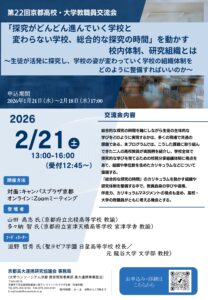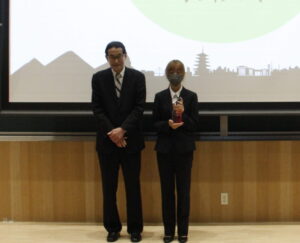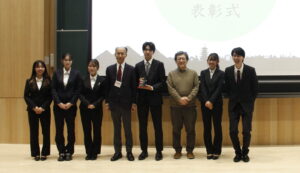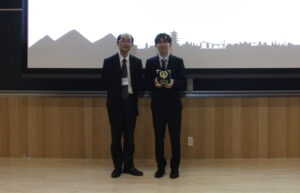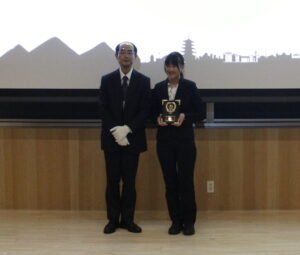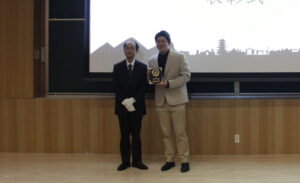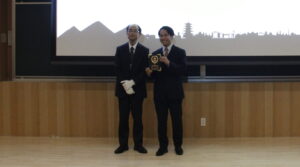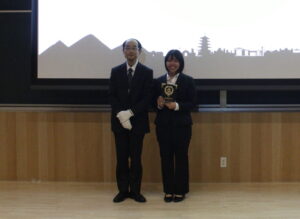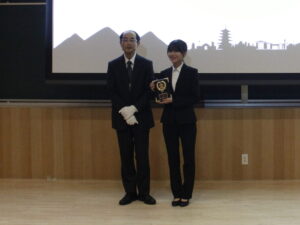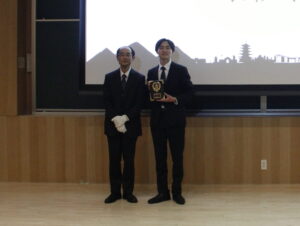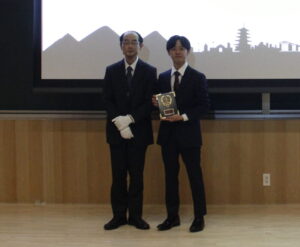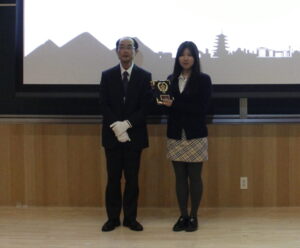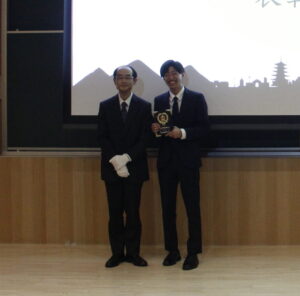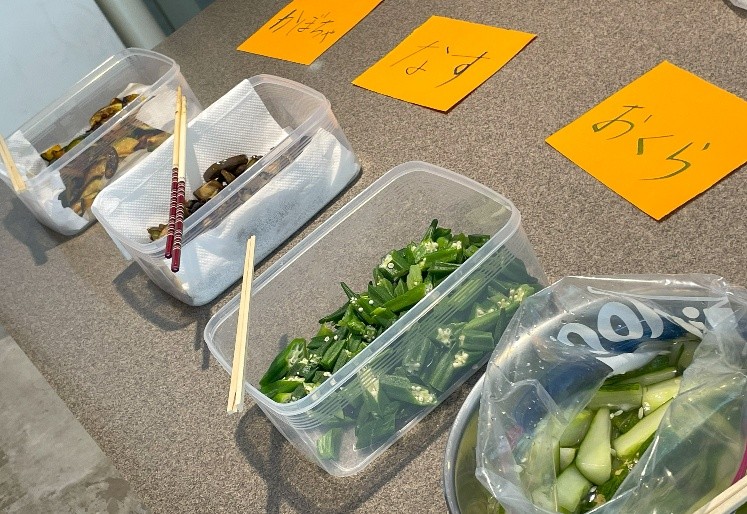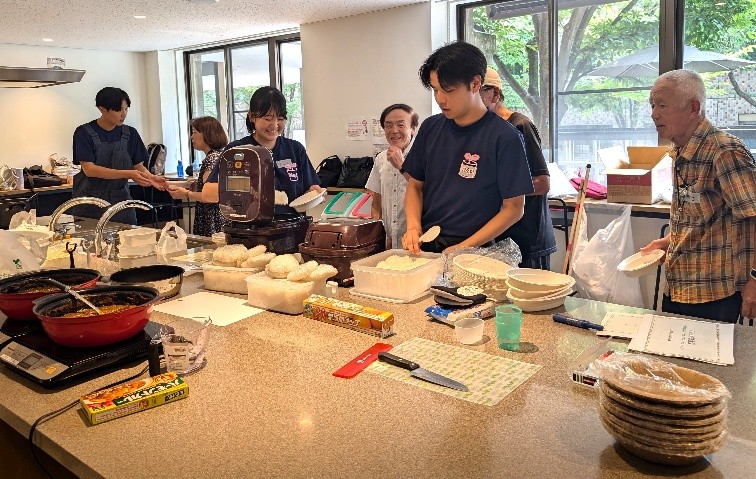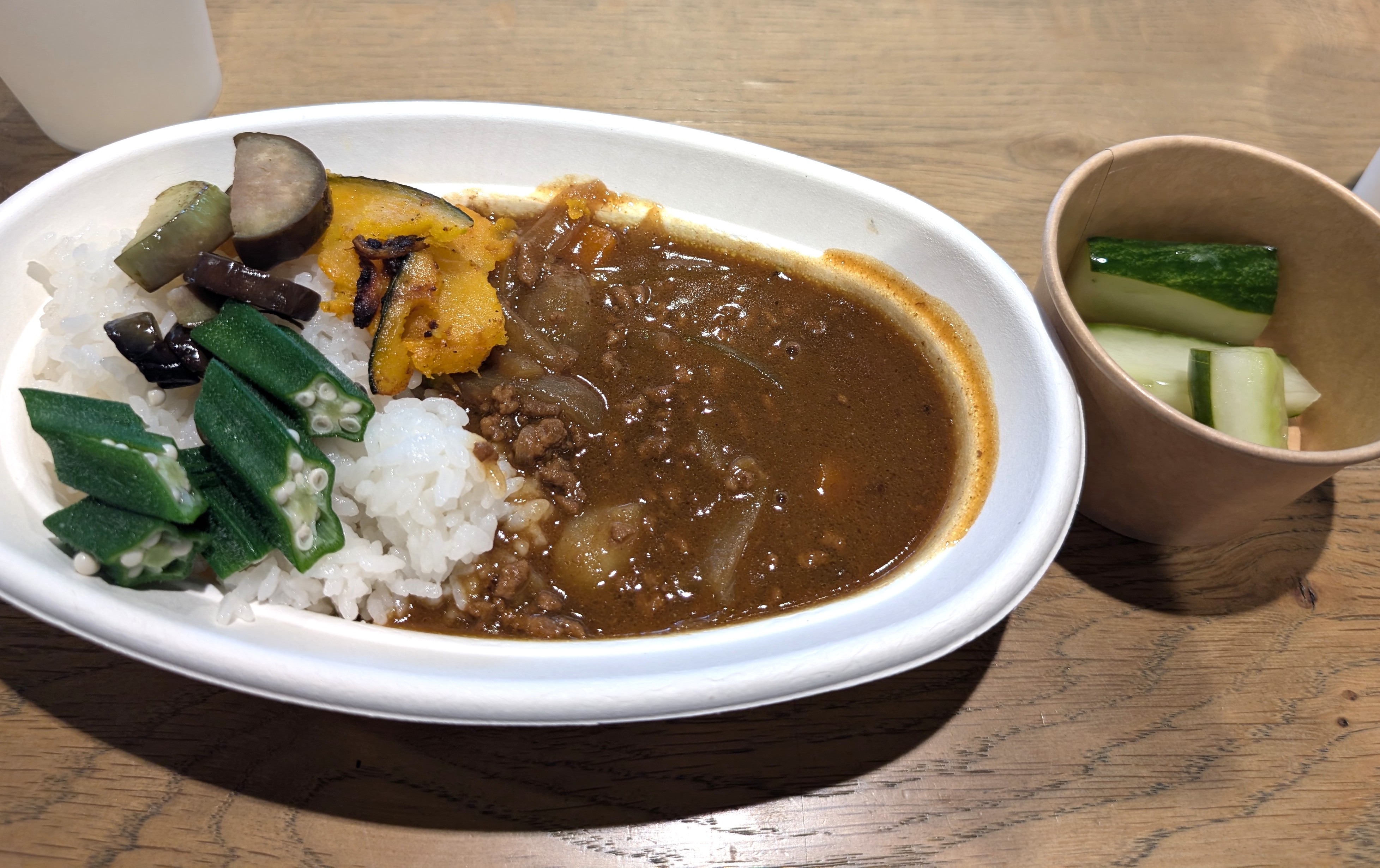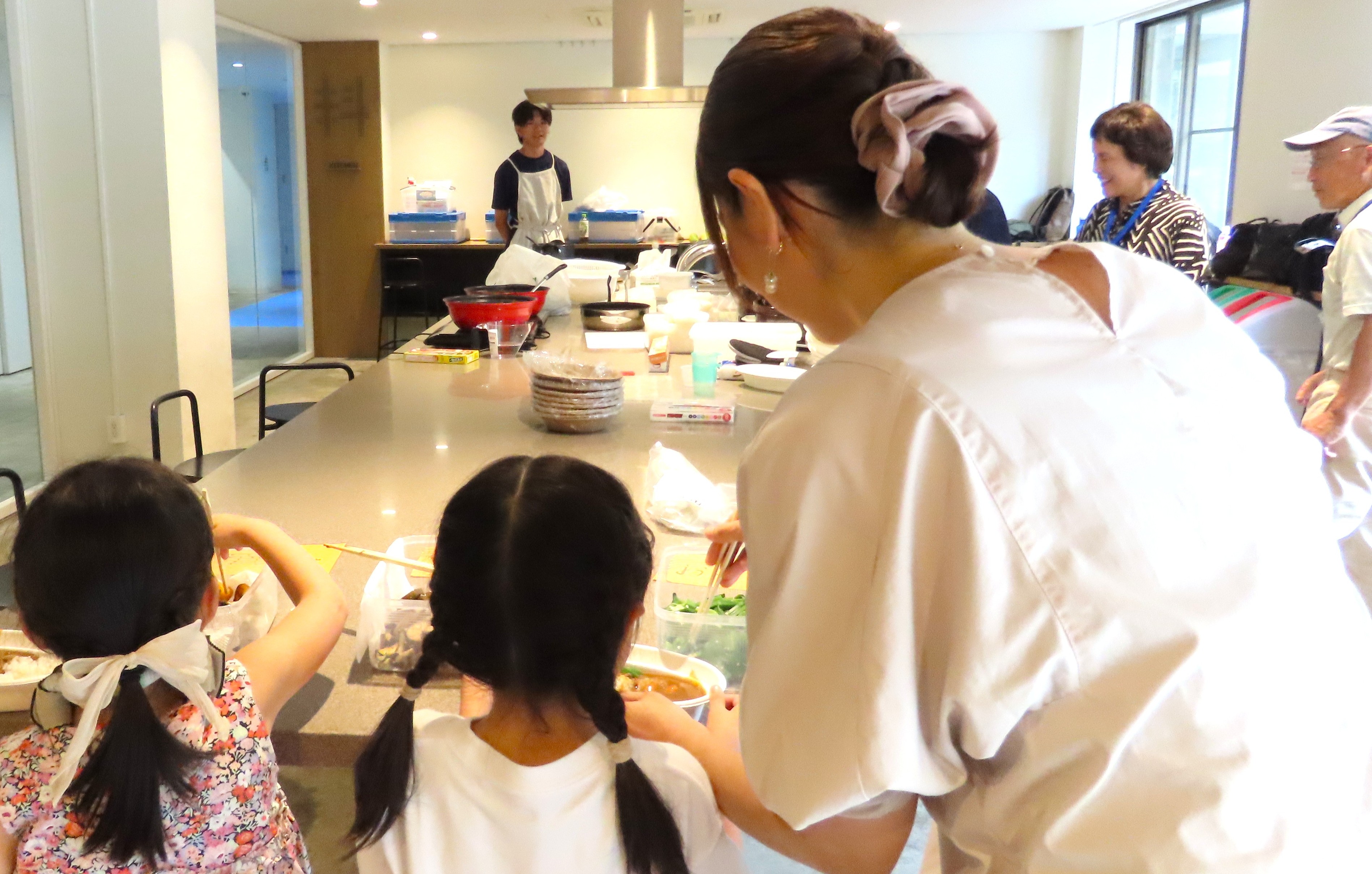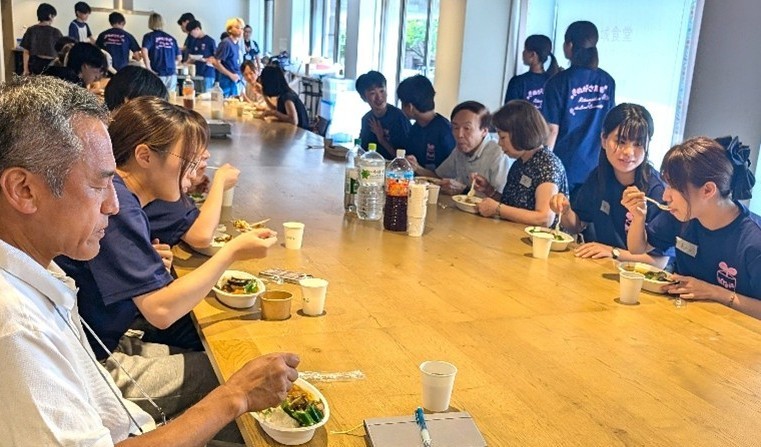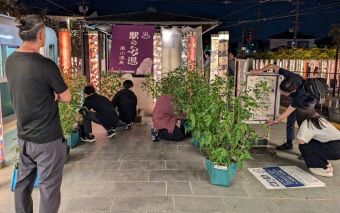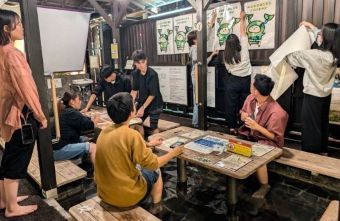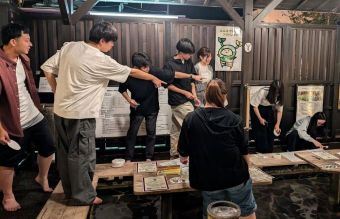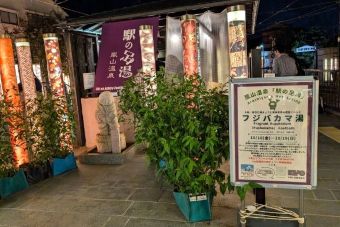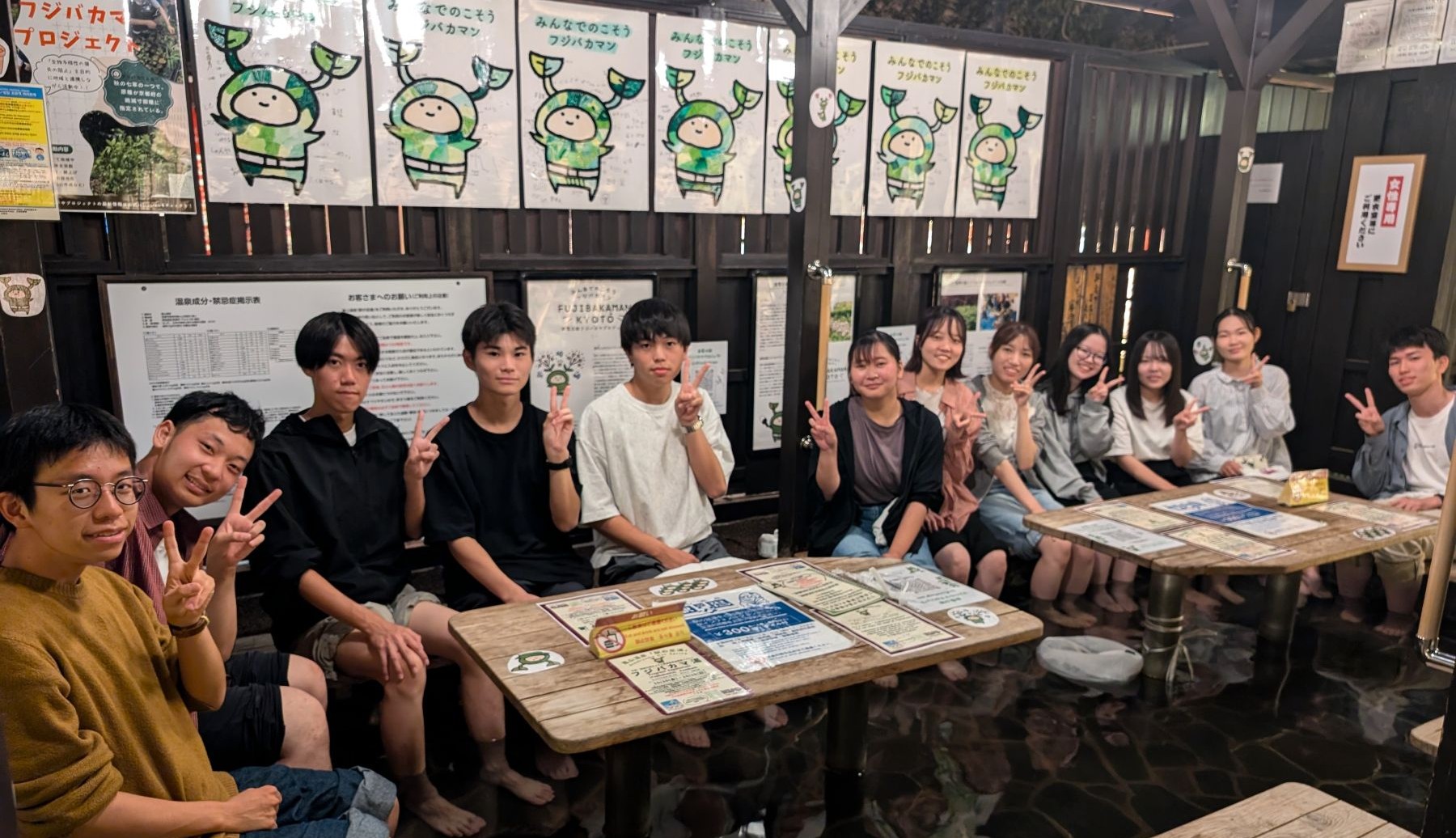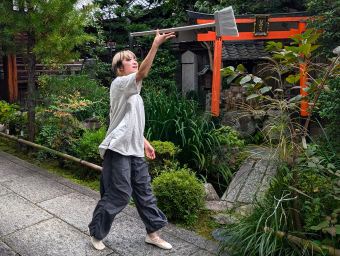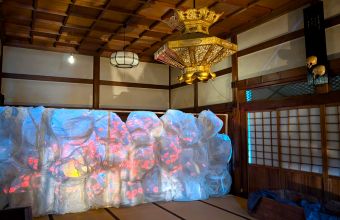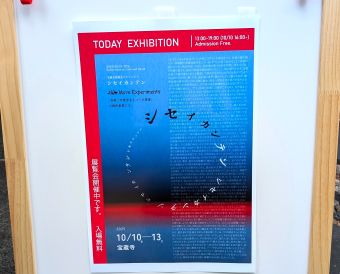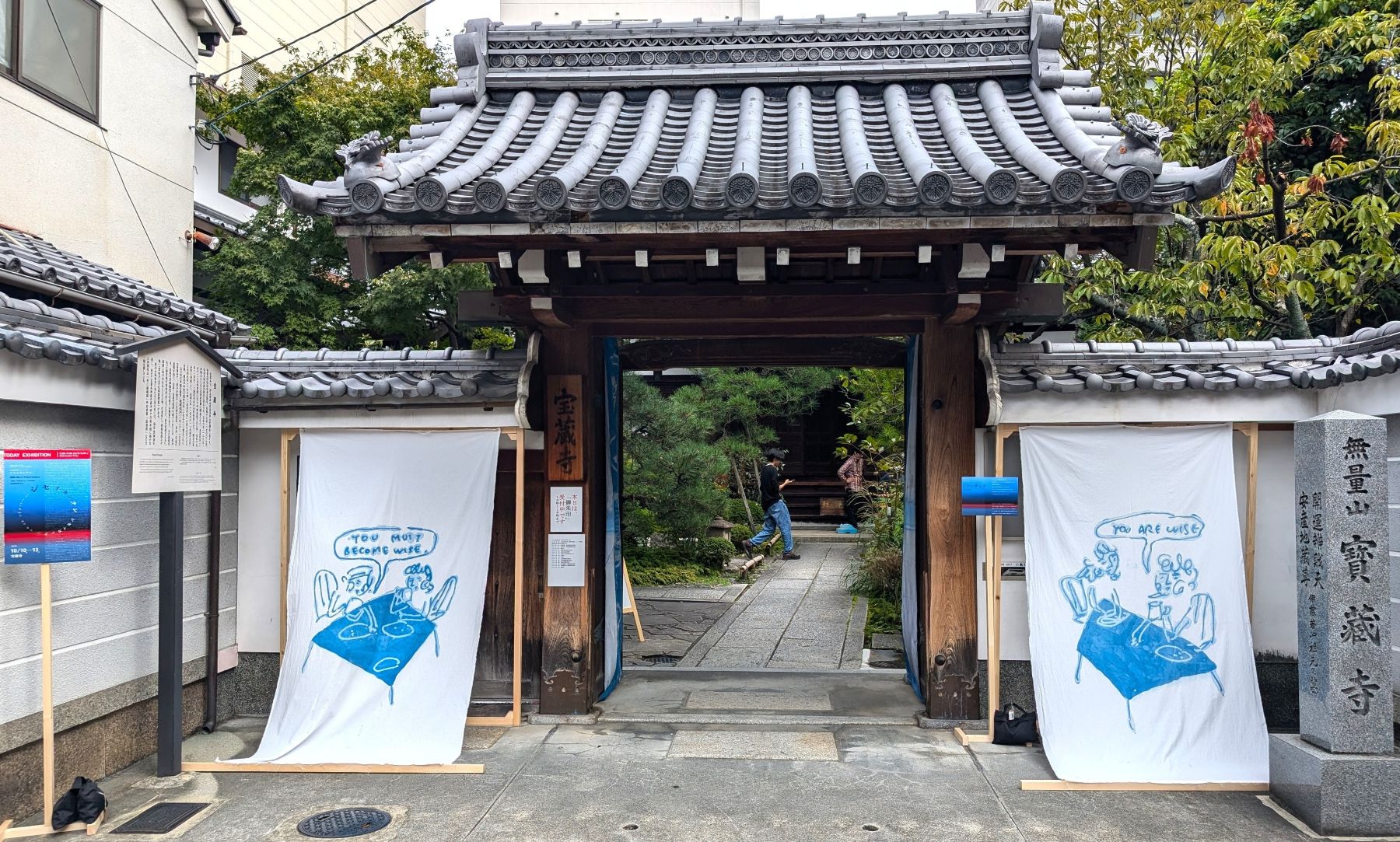Reiwa 7 Introducing the efforts of the school town collaboration project that connects students and the community.
The “Gakumachi Collaboration Project” is a “Gakumachi Collaboration Project” in which universities, students, and the community “collaborate” to solicit projects and projects that work on urban development and regional revitalization in Kyoto, and provide subsidy support.
We will inform you of the efforts of this year’s adopted organizations! !
【Activity Introduction (1)】Ritsumeikan University “Kinugasa Farm Kreis”
On Wednesday, August 20th, the “Kreis Community Cafeteria” was held at Ritsumeikan University Kinugasa Campus, and I visited it!
In 2020, “Kinugasa Farm Kreis” was launched in the midst of the coronavirus pandemic, and is a student organization that grows vegetables in collaboration with the local community. Approximately 70 students are taking the lead in activities that are conscious of local production, local exchange, and SDGs, starting with making mulch from fallen leaves with local people and delivering the harvested vegetables to school cafeterias and the community.
At the “Kreis Community Cafeteria”, which was held for the first time, 20 students and 15 local people participated in the curry using vegetables they grew themselves. ”Because it is an area where there are many elderly people and children who eat alone, we wanted to create a warm table where everyone can gather around,” says the representative, Marin Shinohara.
As for public relations activities, posters were distributed to neighboring districts and bulletin boards set up in front of the farm were used. Since the farm is located on a walking course in front of Tochi-in, it naturally caught the attention of local people and became an opportunity to visit. The most difficult part of preparing for the event was not being able to read the harvest of vegetables. He said he was worried because he didn’t know which age group would come, but he was relieved that many people actually came to visit. In addition, in the past, when the university cafeteria closed during the summer vacation, it was difficult to find a supplier of the harvested vegetables, but it was a great achievement that we were able to utilize many summer vegetables through this event.
Regarding the future, Mr. Shinohara said, “I would be happy if you could come to the farm and have the opportunity to actually have fun talking with the students, and I hope that the fun of farming and awareness of SDGs will naturally spread through this activity.”
Finally, we who visited for the interview also feasted on freshly picked vegetable curry. A dish filled with the taste of fresh vegetables and the desire for activities. It was very delicious.
Thank you for the meal!
Please check the activity status at ↓. https://www.instagram.com/kinugasanoen__kreis/
【Activity Introduction (2)】Ritsumeikan University “Fujibakama Project Student Team along the Randen Line”
From October 10th (Friday) ~ 19th (Sunday), “Fujibakama Yu” was held in Randen Arashiyama Station. On Thursday, the 9th, the day before the event, we covered the preparations!
*What is Fujibakama? Fragrant flowers with white to pale purple flowers in autumn. It was used in sachets during the Heian period, and is now popular as a flower called the migratory butterfly “Asagi Madara”.
The Fujibakama Project, which began in 2021, is carried out throughout the year with the cooperation of students, Randen and Ritsumeikan University faculty and staff, and local people. In spring, Fujibakama seedlings are planted, grown in summer, and bloom in autumn. Local elementary school students and volunteers also participate, deepening exchanges through the process of nurturing.
“Fujibakama Yu” is an event that has been going on since the beginning of the project, and it started with the desire to let many people know the charm of Fujibakama. Through the event held in Arashiyama, a tourist destination, we widely disseminate our activities to local people and tourists.
In preparation, we cooperated with Randen and landscaping companies to coordinate material transportation and setup. We had local people participate in the bud cuttings and planting work, and we were able to proceed with the cooperation of the entire region.
Mr. Iinuma, the representative, says, “The most difficult part of growing Fujibakama is watering.” Fujibakama is a water-loving plant that requires daily watering. This year, we used the subsidy money to install irrigation equipment and water automatically, but the students continued to water in turns during the summer vacation. As a result of their efforts, the flowers bloomed well this year and grew splendidly.
Growing strong Fujibakama will also lead to community development. If the leaves grow vigorously, events such as foot baths and scent bag making will be enhanced, and interactions with local people will be further expanded. In fact, Fujibakama has become a place that connects people, such as local people, students, faculty and staff, such as local people, students, and faculty members who visit to see the flowers.
In the future, while valuing the idea of “protecting and nurturing”, he would like to expand his activities together with the community. As a later story, it seems that the migratory butterfly “Asagi Madara” also flew to Fujibakama on the Kinugasa Campus! I look forward to the expansion of conservation activities through Fujibakama in the future.
Please check the activity status at ↓. https://www.instagram.com/fujibakama.r/
【Activity Introduction (3)】Kyoto City University of Arts, Kyoto University of the Arts, Kyoto Junior College of Economics, Kyoto University “Hozoji Exhibition Project”
On Saturday, October 11th, we covered the Hozoji exhibition project “Shisei Kanten”.
This project began with the desire of students from Kyoto City University of Arts to hold an exhibition in a place that is unique to Kyoto, and the project began at Hozoji Temple through the introduction of university officials. Under the call, students from Kyoto City University of Arts and other universities gathered to form a team of members who met for the first time.
From this year, we will hold a research work meeting once a month. He has been active at Hozoji Temple, universities, and Nishinari Ward, Osaka City, and has deepened his thoughts on “life and death” and “connection with people” through lectures at temples, meditation sessions, and visits to art community spaces in Nishinari Ward.
Through repeated exchanges of opinions, it became clear that each member’s interest could be concentrated in the word “view of life and death”, and the theme of the exhibition was decided to be “view of life and death”. The reason is that the affinity with the temple and the interest of the students overlapped. Each member created a work based on their own experiences and thoughts, and held an exhibition over four days. At the opening, a performance using motion capture was also shown, making it a time when traditional space and modern expression were harmonious.
In addition to posters, public relations were carried out through nearby temples, Kyoto Kawaramachi Station, and art-related facilities, and many local residents and tourists visited. Although there was no collaboration with local residents, Mr. Onuma, the representative, said that by opening Hozoji Temple to the community, he was able to create a place where people can gather and dialogue is born.
Although it is mainly a student, this exhibition confronts the heavy and deep theme of “view of life and death” head-on, and each member attempts to express it in a modern way. It was a place to ask many questions and awareness to visitors.
This exhibition was the first large-scale exhibition for the project. In the future, he plans to look back on his activities and consider his next development based on this experience.
I’m looking forward to the next exhibition!














